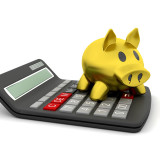How prepaid debit cards can help keep you on budget and in control of your finances
They’re the kind of stories that make people shake their heads in disbelief. Layered with no small amount of schadenfreude, these are the tales of talented athletes whose prowess on the field and court earn them both adulation from fans and millions of dollars per year. Yet somehow, through horrific spending habits and bad advice, all of those millions disappear. ESPN recently aired a documentary, appropriately titled “Broke,” chronicling the commonplace financial problems of once wealthy athletes, which included a stunning list of athletes who have declared bankruptcy: names like Mike Tyson, Dorothy Hamill, Derrick Coleman, Bill Buckner and many, many more.
While it’s easy enough to cluck disapproval about the profligate ways of pampered sports stars, the unfortunate reality is that the bad financial habits that lead people like Terrell Owens to go broke are just as common among the less well known and well paid among us. And in fact, while there may be less zeros involved with the debts, there are plenty of people who chronically spend more than they make. One of the main culprits that allow that sort of bad behavior to spiral out of control, of course, is the credit card. Indeed, convenient and necessary as they might be, credit cards are all too often the bane of sound money management.
This all may sound like familiar territory, but given the rampant problem of indebtedness in this country it’s worth revisiting. As anyone who has ever had one knows well, credit cards have a limit, the maximum amount you can charge. But let’s be honest: credit card limits aren’t individually tailored to your financial situation and there are rarely instances when people can afford to bump up against their credit limits. And if you’ve reached that point, you’re already doing damage to your credit, a signal to lenders that they should jack up the interest rate they charge you on mortgages and car loans because you just might not have the money to repay them.
Sometimes, good money management – which, in the end, is all about not spending more than you have – requires a little tough love. Which is where prepaid debit cards come in. The reason prepaid cards won’t get you into the kind of trouble a credit card with a high limit can is deceptively simple: there’s no borrowing (that is, credit) involved. In other words, a prepaid debit card forces you to live within your means because it only allows you to spend money that you have already earned and used to fund, or load, the card. You can’t put money on the card unless you have the money in the first place. In a way, it’s like awarding yourself an allowance.
There are other ways a prepaid debit card aids the money manager lurking somewhere inside us all. Knowledge truly is power when it comes to managing your finances. For one thing, you can easily keep track of your prepaid card balance online or on your smart phone. A prepaid card can also be an enormous help in crafting a family budget. Take the time to review a month’s spending on your prepaid card. Who knew you were spending $10 a week on sodas? Well, now you do, and that knowledge should help you devise a budget that reflects your priorities.
There are other, less obvious ways that a prepaid card can help with money management. Cash flow is an important aspect of sound finances and prepaid debit cards can be helpful in aiding the swift delivery of income tax refunds for those who don’t have bank accounts. According to the Federal Deposit Insurance Corporation (FDIC), about 30 million American households don’t have bank accounts. If someone has a bank account and opts to get their refund deposited directly, they can expect to wait about two weeks from the time they file their return. But if they have no choice but to wait for a paper check, it takes 6 to 8 weeks for a refund to arrive. By contrast, people with prepaid cards, whether they have bank accounts or not, can get their tax refund deposited almost immediately, eliminating the need for any more refund-anticipation loans.
Prepaid cards aren’t perfect, of course. And while prepaid debit card issuers charge fees, you can still get a card with minimal fees by shopping carefully. “Some prepaid debit cards are loaded with fees than can often resemble a minefield. There are, however, prepaid debit cards that have very few fees. Comparison shopping for prepaid debit cards is more important than almost any other financial-services product because you can, in fact, save hundreds of dollars each year by choosing a fee-friendly version,” says John Ulzheimer, president of consumer education at SmartCredit.com.
Who knows, if Terrell Owens or Bernie Kosar or any of the other athletes who have had financial problems had been using prepaid debit cards they might be remembered today only for their athletic achievements.
